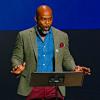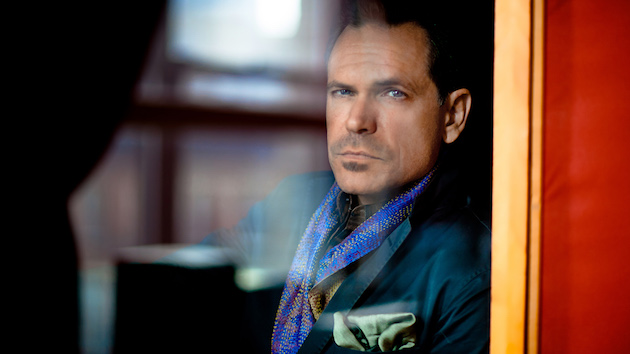
I don’t think you’re supposed to congregate in a church during a pandemic, but Kurt Elling’s about-to-be-released album Secrets Are the Best Stories (Edition Records) is close enough, for jazz, to such an experience.
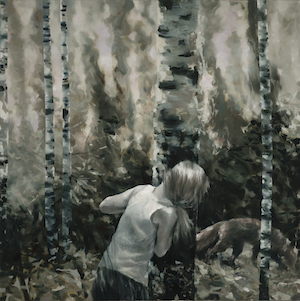
I’m transparently invoking an element of Elling’s bio: Before he became what the Toronto Star has termed “the closest jazz will ever get to having its own saint,” a lyricist and baritone vocalist with a four-octave range, Elling, now 52, was one credit short of graduating from the University of Chicago Divinity School. Arguably, he’s invested the same sort of spiritual affect in the forthright manner in which he writes and delivers lyrics, as well as in what he chooses to sing about. As with some of my previous experiences with Elling recorded and live, I find myself with this album oftentimes attentively admiring the purity of his voice and his purpose but sometimes squirming in my pew.
The music for the album’s first two segued tracks was written by the late bassist Jaco Pastorius, whose compositional style favors the singer with a prettiness and an openness easy to move in. Elling begins a cappella on “The Fanfold Hawk,” subtitled parenthetically as “for Franz Wright,” which might indicate a sourcing in “The Hawk,” by that late poet dedicatee. You can’t really tell, because the notes on the cover of this album are minimal, there’s no liner-note booklet, and there’s a limit to my patience in having to pore through the Internet for matters only hinted at that should by rights have been spelled out. Or maybe that’s just part of the spiritual quest.
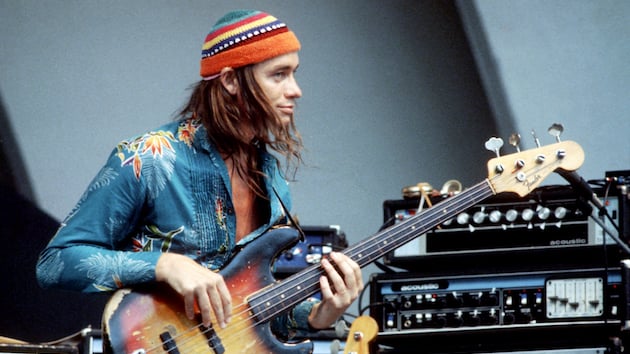
On the bright and evident side, you can appreciate from the outset the plain ingenuousness and tonal trueness of Elling’s vocalization. And you can suppose that these qualities are part of what garners the singer the collaboration of the sort of top-flight jazz players accompanying him here, including (first-off) bassist Clark Sommers and, on the second track, “A Certain Continuum,” Panamanian pianist Danilo Pérez, who, more so than Pastorius’s Weather Report bandmate Joe Zawinul, has the temperament to voice chords prettily and let them ring simply, as well as to bead sparkling arpeggios in instrumental sections of a composition.
In Elling’s lyrics for both of these Pastorius tracks, as elsewhere on the album, there’s less in the way of engaging with “contemporary social crises,” as publicity promised, and more in references to “prayers,” “the will of god,” and “questions about life,” which you’d expect from a former divinity student. This, as I’ve intimated, can approach annoying, particularly when it extends to the length of a Sunday sermon. But the singer is so audibly sincere, and so easy on the ears, you just want to pat him on the back of his clerical vestments and let it pass.
“Stays,” composed by Wayne Shorter (reportedly a mentor to Pérez), has Elling, in league with poet Robert Pinsky, telling more of the sort of proper story suggested by the album’s title, in this case about the narrator’s neighbor, threatened by a fire. Elling displays a good actor’s ability to sell most any sort of narrative and/or dramatic line, and to evince the inherent musicality of speech. Alluring percussion by Brazilian percussionist Rogério Boccato, along with Pérez’s pianistic brushstrokes, suggest the ‘lucid dreaming’ ascribed to artwork by Norwegian Lars Elling (is he a distant relative?), who contributed the album’s sylvan cover painting.
“Gratitude (for Robert Bly)” has us grateful to Pérez for supplying melodic lines that partner so well with poetic lines, both in the composition and its performance, to Sommers for his mellow underlying hum, and to Boccato for what sounds like whispery cymbal work. “Stage I” is one of two tracks with music by Django Bates and lyrics by Norwegian Sidsel Endresen which strive to make the inconsequential sound consequential. On “Stages II, III,” an affecting sensitive communication between Elling and Pérez is impressively evident, rather invoking a similar link between Harry Nilsson and Randy Newman on the breathtaking Nilsson Sings Newman (RCA Victor, 1970), but in a much less gritty, far more ephemeral manner.
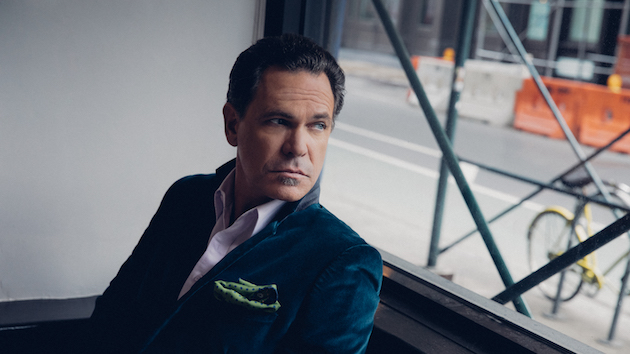
Positioned between those two tracks, “Beloved (for Toni Morrison)” seems like an overdose on languor, but it’s saved somewhat by the only appearance here of Puerto Rican alto saxophonist Miguel Zenón, a former member of the SFJAZZ Collective. Elling deploys spoken voice here, which is good. It’s not so good that here, and on some other tracks, he feels the need to multitrack his voice. He doesn’t need that, particularly when some of the cloned Kurts come with electronic effects.
A much-anticipated creation by Pérez and Elling (who together coproduced the album) is “Song of the Rio Grande,” dedicated to Oscar and Valeria Martinez-Ramirez, the Salvadoran father and daughter who drowned last year trying to cross the river from Mexico into the U.S. Here is where Elling most directly and effectively addresses social crisis, lamenting that, “The Rio Grande has drowned my heart ... America, you’ve lost your mind,” and straightforwardly decrying “the people we’ve elected to lead us.” The irresistibly mournful melody sounds like it’s delivered in part on prepared piano — but once again, without notes, we can only guess.
There’s also a Latin tinge to this album; the majority of the ensemble — including guitarist Chico Pinheiro and percussionist Roman Díaz, as well as those already mentioned — are from south of our southern border. “Rabo de Nube,” translated as “Tail of a Cloud,” was written by Silvio Rodriguez, Cuban leader of the nueva trova folk-music movement, and by the uncredited Spanish poet Luis Eduardo Aute. Singing in Spanish with an audible American accent, Elling effectively conveys the sadness of the lyrics with another sort of protest (in translation): “I would prefer the tail of a cloud to take away the ugliness.”
“Esperanto” has Elling setting some of his arguably best lyrics to a melody by Vince Mendoza. They include a long litany of “holy” things to be cherished and a series of impelling questions such as “If I die, where does time go?” Pinheiro contributes appealing guitar and Boccato effective percussion, with Elling hinting at the vocalese he’s deployed more extensively on earlier albums.
We exit from this musical service with a recessional in the form of Pérez’s clarion instrumental “Epilogue.” However our minds may manage to assess what we’ve heard, our hearts know that it was sincerely and earnestly offered.




